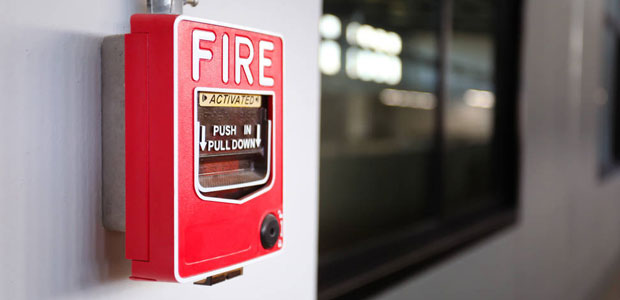Regardless of the industry, all business owners must be aware of the potential for fire in the workplace. A few seconds can save lives in the case of a fire emergency. As a result, businesses must remain aware of fire dangers in their surroundings and take proper precautions to avoid fires. Installing good fire alarm systems that will inform employees if a fire develops is also recommended. Staff and property will be kept safe by fire and security systems that detect smoke, extreme heat, or fire and provide an alarm.
Where should alarm systems be installed?
The location of fire alarm systems is determined by the type of alarm you want and the layout of the site. Standard smoke alarms must be put in a central location. Fire and security systems should be installed on each floor of multi-story structures. To avoid the flow of cold air interfering with the accurate detection of fire, smoke, or heat, security specialists Tranter recommend installing alarms away from lights, air conditioning vents, and ceiling fans.
Fire alarm systems are monitored and tested.
Every week, fire alarms must be checked by activating a sounder. It will also need to be tested by a qualified individual. A comprehensive service will be required every one to four years, depending on the size of the fire and security systems. To test the detector, fake smoke is released, which causes the alarm to sound. Every year, each detector should be inspected to ensure that it is in good working order. Click here to get a new alarm system installed.
Emergency plan
Regardless of their size, all firms should establish a fire emergency plan and identify essential personnel who are thoroughly prepared to carry out the plan in the event of an emergency. It’s also crucial to evaluate the fire and security systems plan regularly to ensure that it’s up to date and that everyone understands the procedures. An emergency plan should not be overlooked since seconds lost in the case of a fire can result in injury, property damage, and even death. Proper action must be taken as soon as a fire alarm sounds.
What Makes a Fire Alarm System Appropriate?
The essential word is that you must install an “adequate” fire detection system, and the legislation demands that you do a fire risk assessment for your business. The optimum degree of detection, protection and alert system will be determined by the fire risk assessment. You may, for example, have an empty facility with no merchandise, employees, or customers. The Fire Danger Assessment may reveal a minimal fire risk to tenants, adjacent buildings, stock, or the general public. Would your insurance carrier, however, need a properly built, maintained, and monitored fire system with audible alarms in the case of a fire in the building? In a shop, where products, packaging, personnel and visitors are abundant, as well as machinery and equipment, the fire risk assessment may show a higher fire and life safety risk level.
Every year, more than 600,000 fires are reported across the United Kingdom. Each year, they cause over 17,000 injuries and over 800 deaths. Around 50,000 of them happen in the house, impacting both owner-occupied and rented homes, while the rest mostly happen in businesses.
The harsh reality is that if your home catches fire and you don’t have a smoke alarm, you’re twice as likely to die as if you have one or more alarms. A smoke alarm system provides early notice to building occupants, greatly increasing their chances of leaving in time. To summarise, installing smoke alarms might save your house and life, as well as the lives of your family, renters, or employees. Many injuries and deaths may be avoided if individuals could always exit the property promptly.
This post will go through the many types of smoke alarms and how to test and maintain them. When it comes to the installation and placing of smoke alarms, the manufacturer’s recommendations should be followed.
How do smoke alarms get their power?
The majority of smoke alarms are similar in appearance and are either mains or battery operated. If the mains power supply is disrupted, most mains alarms will include a battery backup. Most smoke alarms now have a silencing button for usage when a false alert has been triggered, such as during cooking.
Standard battery-powered smoke alarms require a new battery every year, however smoke alarms with sealed 10-year batteries are available. Mains-powered smoke alarms are required in any new construction or large property renovation. They should include a battery backup, with rechargeable lithium batteries being preferred because they will last the whole life of the alarm. A certified specialist must install main smoke alarms.

